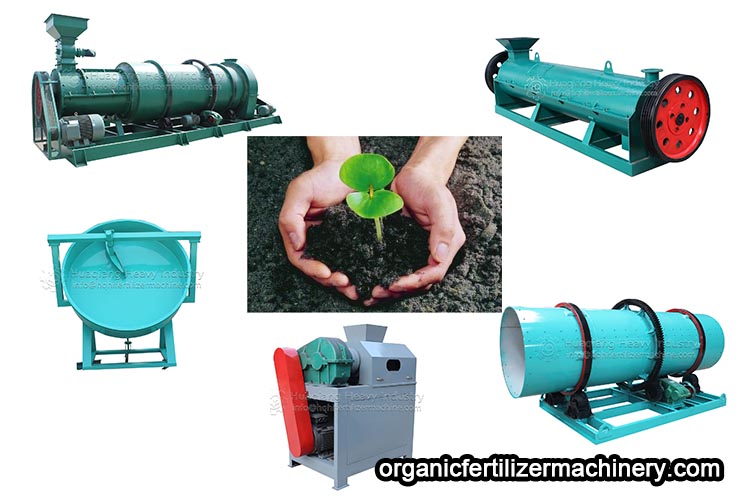The equipment of the cow manure fermentation organic fertilizer production line is the process of turning poultry and livestock manure into treasure. Poultry and livestock manure, straw and rice husks, biogas sludge, kitchen waste, and urban waste can all be processed into organic fertilizers. The production process of cow manure fermentation organic fertilizer production line equipment is mainly divided into two parts: the early fermentation treatment stage and the later processing and granulation stage.
The equipment of the cow manure fermentation organic fertilizer production line varies according to the different equipment configurations of the raw materials, and appropriate plans are made based on the investment budget. The prices of organic fertilizer production lines with different yields also vary. Firstly, it is necessary to consider how much output you want to invest in the production of organic fertilizers, and then inform the manufacturer of the raw materials used for processing and production. This will enable you to choose the appropriate production line configuration based on the investment budget.
The equipment of the cow manure fermentation organic fertilizer production line can use an aerobic composting machine for early fermentation treatment, including raw material pretreatment, fermentation, maturation and other processes. Under natural ventilation conditions, composite microbial fermentation agents are added to the material, and the flat stacked ground is used for fermentation. According to the internal temperature of the material pile, mechanical control is used to flip the pile in a timely manner. In the post ripening stage, aeration fermentation, drying, and screening are used to produce powdered bio organic fertilizers, or granular organic fertilizers (spherical or cylindrical particles) are produced by granulation according to market demand.
The equipment for the organic fertilizer production line of cow manure fermentation, poultry manure, and livestock manure are fermented by a composting machine, crushed by an organic fertilizer crusher, and screened by a screening machine. After being fully fermented and matured in a fermentation tank, they enter the granulation stage. After being granulated by an organic fertilizer granulator, the particles are spherical with an organic matter content of up to 100%, achieving pure organic matter granulation. The processed organic fertilizer particles are solid and can be sieved after granulation, reducing drying energy consumption.

.jpg)

.jpg)


.jpg)

.jpg)